I arrived in Kiev last Sunday, the day after the city hosted the 2018 UEFA (Union of European Football Associations) Champions League Final between Real Madrid and Liverpool.
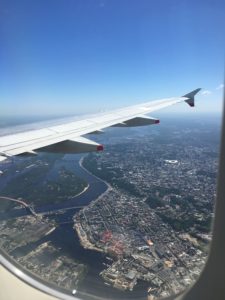
The match was held in the Национальный спортивный комплекс «Олимпийский» (Olimpiyskiy National Sports Complex), which was recently renovated for the 2012 UEFA European Championship, along with other major improvements to the infrastructure of the city. Most interesting of these is the addition of English alongside Ukrainian and Russian titles in the metro and on street signs, to better accommodate international football fans and promote tourism.
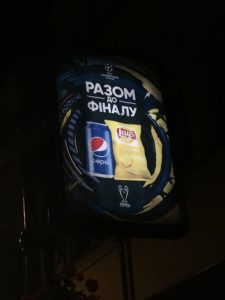
After I arrived in Kiev, I was taken to my host mom, Viktoria, who lives on the left bank of the Dnieper River in a Soviet-style apartment building with her teenage son. While the goal of my home stay is to speak with my host family only in Russian, I was slightly relieved to find out that my host mom is actually an English tutor and both she and her son speak Russian and English, which is helpful for learning and translating new Russian vocabulary.
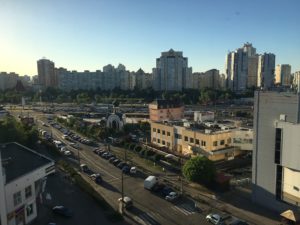
Every morning at breakfast and every night at dinner my host mom talks with me in Russian about what I did that day. While I have yet to try borsch, she serves me potatoes with almost every meal. Coffee and tea are also very popular drinks here, and there are small stands with кофе (coffee) and чай (tea) on almost every corner. The majority of advertisements are in Ukrainian, but in Kiev most people can understand both Russian and Ukrainian, and menus at restaurants are available in Ukrainian, Russian, and partly in English.
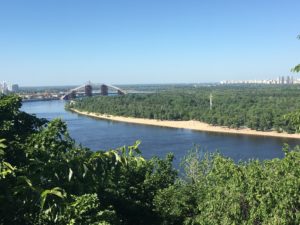
I ride the metro to school every day, across the Dnieper from the left (east) bank to the right (west) bank. I was interested to find out that the terms “left” and “right” are only directionally correct if you are facing south, in the direction that the river flows. The metro ride takes me about 30 minutes plus a 5-minute walk past Золотые Ворота (Golden Gates), which was the southern gate to the city of Kiev in the 11th century. Today, this neighborhood is the location of many restaurants, cafes, and foreign embassies, as well as my school.
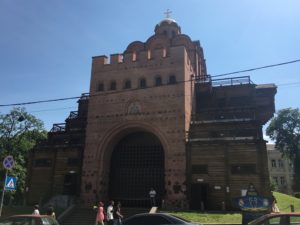
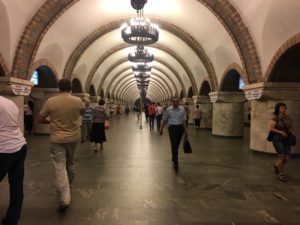
I am currently taking one class in Russian at the B2 level. We meet every day and begin class with лекция (lecture), which is when we each talk for a few minutes about news or events that happened the previous day. My vocabulary has been the biggest hurdle to overcome, besides adjusting to how quickly native speakers talk. I also have peer tutoring once a week and an excursion on the weekends with a native speaker to practice conversational Russian. We talk and walk around the city for about 2 hours, visiting landmarks in Kiev and discussing every day life. This is another area I look to improve, because once I understand what is being said, it is then much more difficult to formulate a coherent response to demonstrate my understanding.
However, I think that practicing my conversational Russian in class, with native speakers, and my host family will help me improve my speaking fluency. I also look to attend weekly movie screenings with Russian subtitles to improve my vocabulary, outside of the vocabulary practice my teacher assigns for class.